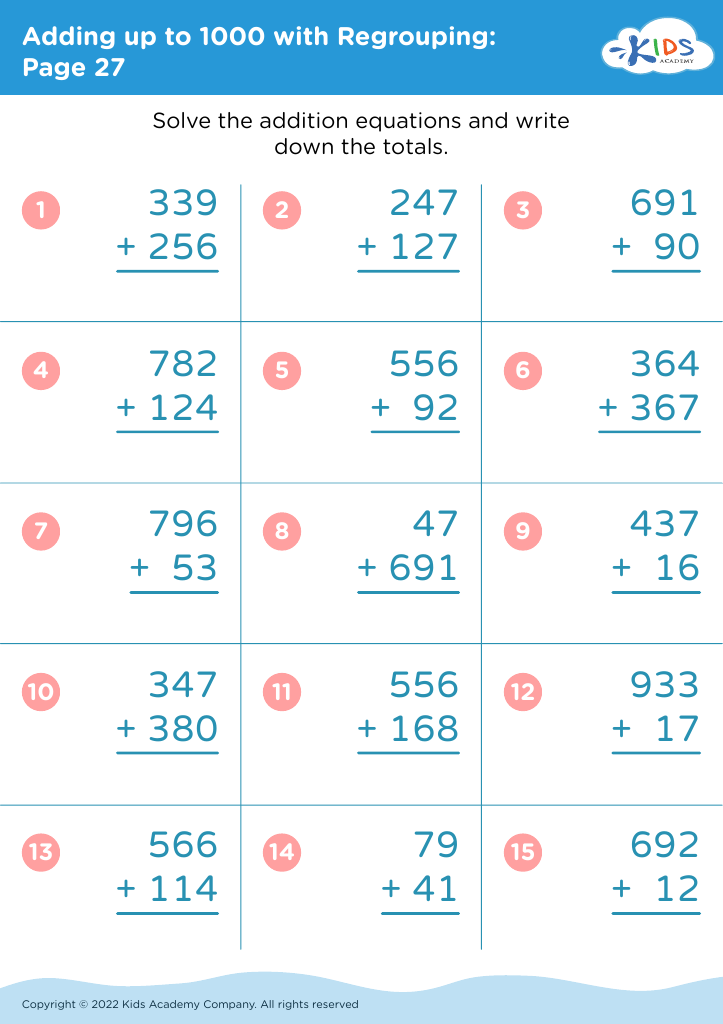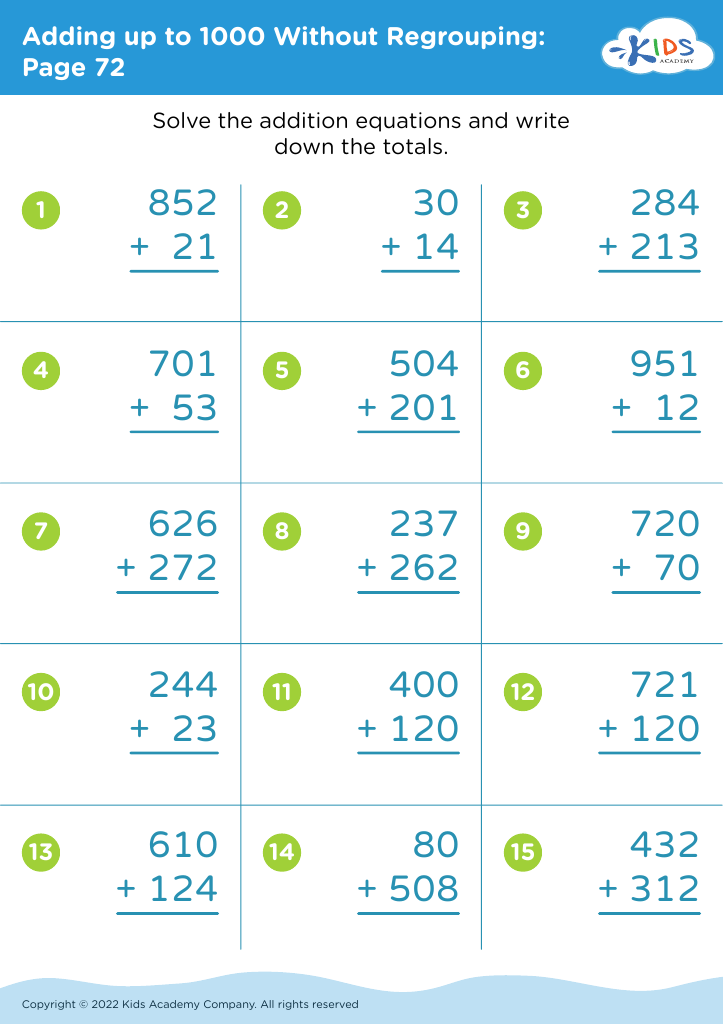Learn new vocabulary Addition & Subtraction Worksheets for Ages 4-9
4 filtered results
-
From - To
Discover engaging "Learn New Vocabulary Addition & Subtraction Worksheets" designed for children aged 4-9! These worksheets help young learners enhance their math skills while expanding their vocabulary. Perfectly aligned with early education standards, our activities seamlessly integrate vocabulary development with foundational math concepts. Through fun exercises and colorful illustrations, kids will not only master addition and subtraction but also familiarize themselves with essential math-related terms. With a variety of levels and themes, these worksheets cater to diverse learning needs and keep students motivated. Explore our collection today to make learning both enjoyable and educational for your child!
Parents and teachers play a crucial role in shaping a child's foundational skills, and understanding new vocabulary related to addition and subtraction is essential for early mathematical development. For children aged 4-9, vocabulary such as "sum," "difference," "total," and "minus" forms the building blocks for their ability to comprehend and articulate mathematical concepts. By focusing on vocabulary, learners are better equipped to grasp the processes and strategies involved in these fundamental operations.
As children develop their mathematical language, they become more confident in expressing their thoughts, asking questions, and explaining their reasoning. This confidence translates to stronger problem-solving skills and promotes a positive attitude towards math, reducing anxiety often associated with the subject. Furthermore, familiarizing children with these terms aids in their ability to follow instructions in class activities and standardized assessments.
Additionally, vocabulary reinforcement through engaging activities can make learning fun, fostering a love for math in young minds. In an increasingly complex world, providing children with the tools to articulate their understanding of addition and subtraction is vital, ensuring they develop a robust mathematical understanding that supports their academic journey and beyond. By prioritizing vocabulary acquisition, parents and teachers lay the groundwork for lifelong learning and achievement.





















